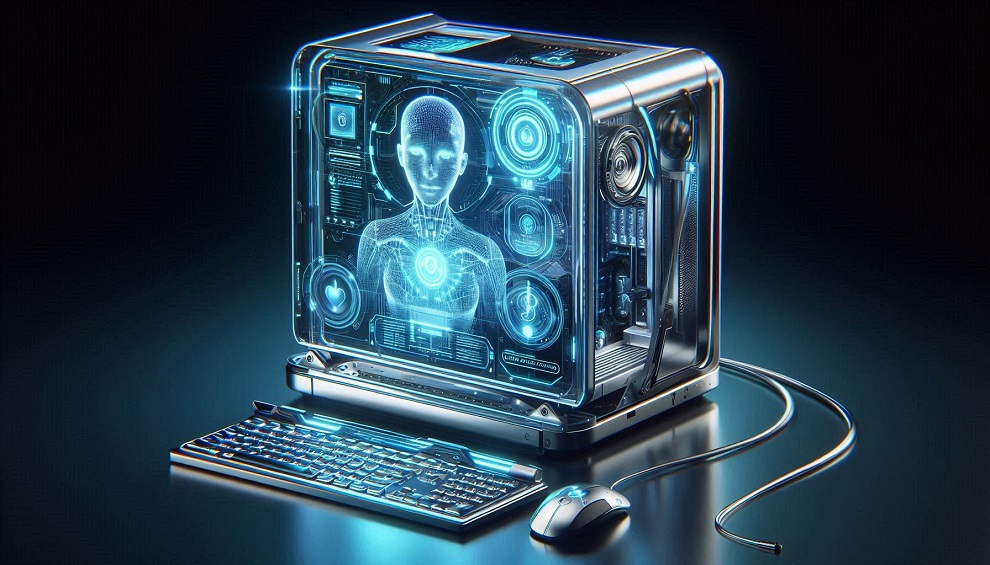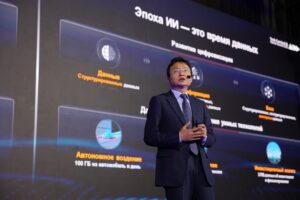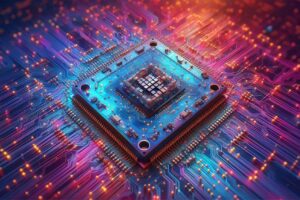Intel report highlights the impact of digital tasks on people and identifies the potential of AI-powered PCs to shoulder the burden
What’s New: An Intel-commissioned consumer survey of 6,000 respondents across Germany, U.K. and France identified that people lose nearly 15 hours a week on “digital chores,” such as meeting transcriptions or drafting emails. At the same time, AI PCs offered a potentially transformative impact on people’s lives, saving individuals roughly 240 minutes a week on routine digital tasks. But the study also highlighted that current AI PC owners spend longer on tasks than their counterparts using traditional PCs. Study results show that greater consumer education is needed to bridge the gap between the promise and reality of AI PCs.
“The AI PC offers consumers the opportunity to unlock greater creativity, productivity and, perhaps most importantly, time to do what they want. But these benefits can only be achieved if people are able to effectively harness AI’s potential to augment the way they live and work. Our role as technology leaders is to support this transition to AI-assisted living and equip consumers with the knowledge they need to use an AI PC efficiently and ethically,” said Robert Hallock, Intel vice president and general manager of Client AI and Technical Marketing.
Why It Matters: The transition to AI PCs represents a big leap forward in personal computing. Understanding the potential of artificial intelligence and learning how to integrate it effectively into daily routines can unlock unprecedented levels of productivity and efficiency. But it requires a change in mindset and new skills. The study reinforced the need for greater awareness of the benefits and potential of AI PCs and the need for further education on how to use the technology to its full extent.
About the Digital Time Suck: Intel’s report around the research, titled “Reclaim your day: The impact of AI PCs on productivity,” seeks to understand both personal and professional consumer computer habits and identify the potential for AI PCs to optimize efficiency and return time to people. It found that people spend an average of 899 minutes on administrative tasks on their personal devices a week, with coding (78 minutes), data analysis (74 minutes) and video editing (68 minutes) identified as the most time-consuming tasks.
How to Bridge the Education Divide: While AI PCs are proven to promote productivity gains, with early data suggesting they can save users roughly 240 minutes a week on routine tasks, many consumers aren’t aware of these benefits or don’t know how to access them. Despite AI PCs becoming more available to people, 86% of respondents have either never heard of or used an AI PC. Meanwhile those respondents who already own an AI PC are actually spending longer on digital chores than those using a traditional PC. This suggests that consumers are spending a long time identifying how best to communicate with AI tools to get their desired outcomes.
While AI boasts the ability to process text near instantly (compared to the average human typing speed of 60 words per minute), that doesn’t necessarily mean consumers will save time when transcribing meetings or drafting copy if they don’t know how to use the technology. As technology providers, there is a duty to provide meaningful education on AI implementation to enable consumers to explore other passions with the time they’ve claimed back.
The survey also discovered prohibitive misconceptions around these products, with 44% of respondents seeing AI PCs as a gimmick or futuristic technology, and 53% believing they are only for creatives or technical professionals.
How Awareness Brings Interest and Opportunity: Survey findings indicate a correlation between greater awareness of AI PCs and adoption of the technology. While only 32% of respondents who aren’t familiar with AI PCs would consider purchasing one for their next upgrade, this percentage jumps significantly to 64% among respondents who have used one before. This shows a promising outlook for consumer interest in AI PCs, but also demonstrates the need to drive awareness around real-world use cases of this emerging technology.
Respondents in Germany were the most aware of AI PCs, with 28% either owning or having used one compared to just 8% in the U.K. and 7% in France. The German market also had the least worries about the privacy and security of their data when using an AI PC, with only 12% of respondents claiming to be very or extremely concerned. This suggests that the German market is the most willing to engage with new technology compared to the U.K. and France, and that there is work to be done to drive greater awareness of AI PCs across Europe.
When asked which feature of an AI PC they would most likely use, respondents identified real-time language translation (39%), file search optimization (35%) and enhanced cybersecurity (32%) as the most enticing features. And 40% of consumers also feel positive about the adaptive capabilities of AI PCs to understand their habits and provide a more personalized experience.
What is an AI PC: An AI PC is the next evolution in personal computing, integrating artificial intelligence capabilities directly into its hardware and software. Unlike traditional computers that either lack AI capabilities or rely heavily on cloud services, AI PCs bring all the computing power into one place. This means that AI workloads running on the PC, such as generative AI, can be based on the user’s local data and personal preferences and don’t require an internet connection. All of this adds up to better data privacy, better efficiency and the option to personalize the computing experience.
Intel recently launched the Intel® Core™ Ultra 200V series processors, delivering exceptional performance and long-lasting battery life, underpinned by AI. Intel Core Ultra 200V series processors deliver up to 120 total platform TOPS (tera operations per second) across central processing units (CPU), graphic processing units (GPU) and neural processing units (NPU). The fourth-generation NPU is up to 4x more powerful than the previous generation and is ideal for running sustained AI workloads while remaining energy-efficient1.












